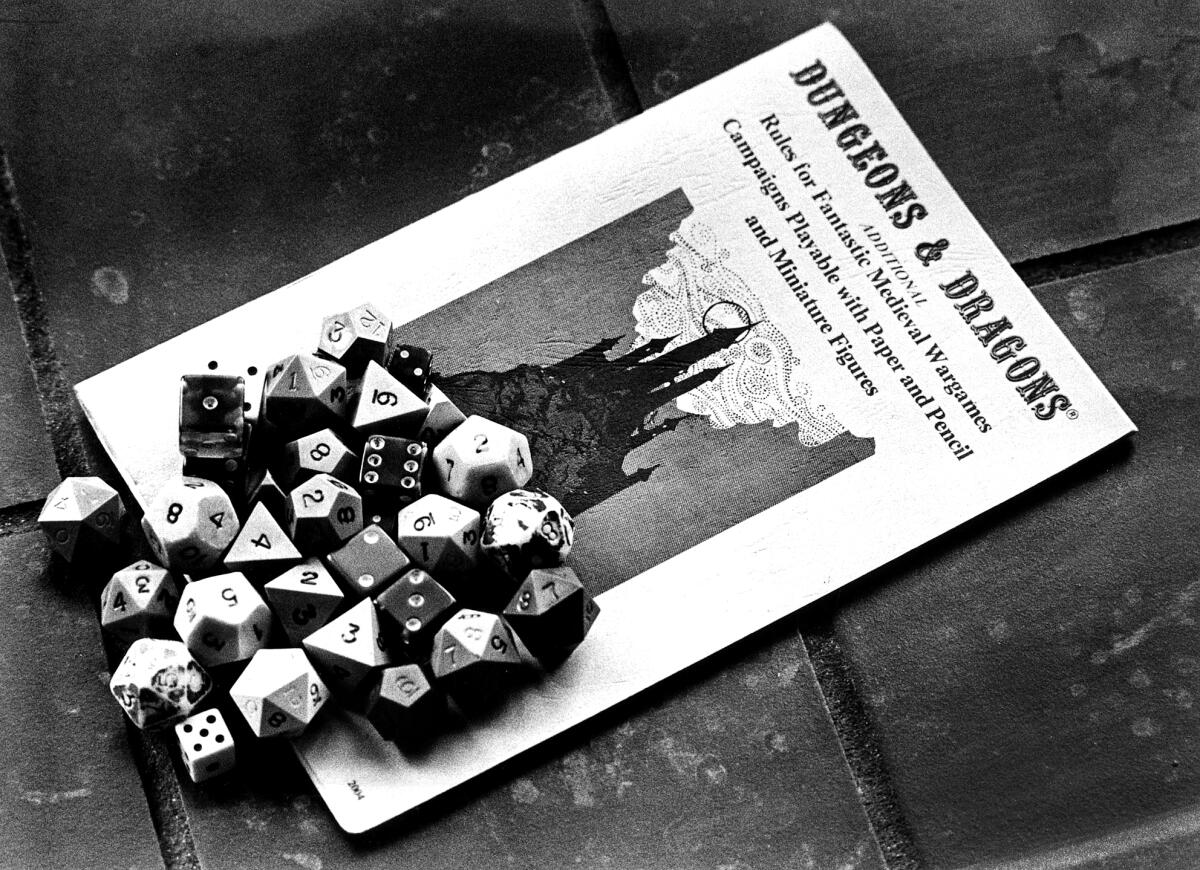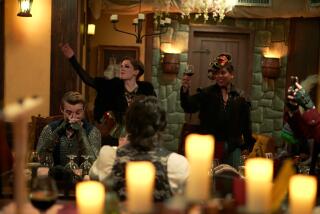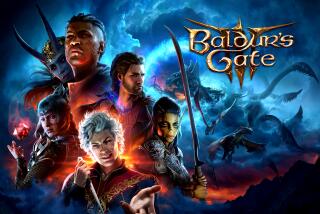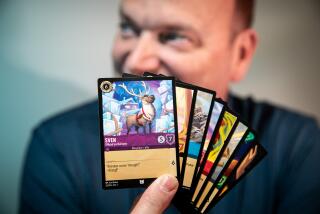Column: D&D nerds (like me) are donning virtual armor and venturing online amid pandemic

There was a time when a deadly pandemic wouldn’t have bothered me in the least. I’d have cast a protection spell to keep myself and others safe. If anyone got sick, a cleric would remedy things with his or her healing powers.
Hi, I’m David. I’m a D&D nerd.
At least I was, years ago, throughout college and a bit beyond.
I’ve been thinking about the many hours of escapist fun Dungeons & Dragons gave me and my circle of writers, actors, artists and musicians who gathered most weekends to imagine ourselves as heroic fantasy figures battling evil and collecting treasure.
For a few hours, I was no longer a young reporter chasing stories. I was Randolph the Deceiver, master illusionist, beguiling foes, enchanting maidens and generally being a tricky but true-blue comrade in arms.
The pandemic has been a huge opportunity for franchises and firms in the escape-from-reality business.
Spending on video games and related gear soared 30% to a record $11.6 billion in the most recent quarter from the same quarter last year, according to market researcher NPD Group.
Netflix added more than 10 million subscribers during the quarter and is now closing in on 200 million subscribers worldwide. Disney+, to cite just one prominent streaming rival, has attracted more than 60 million subscribers since debuting last November.
So I’ve been thinking back to my D&D days and wondering what’s become of the game that once was my hobby and passion. Are people still playing? Can it compete with high-octane fare such as “League of Legends” and “Call of Duty?”
Is there still a place for Randolph the Deceiver?
“Yes!” answered Doug Davison, co-owner of Fantasy Grounds, one of the leading platforms for online D&D. “We may have between 3,000 and 4,000 people around the world playing at any time.”
Nowadays, D&D’s pop-culture cred rests almost entirely on the TV show “Stranger Things,” which depicted its young stars playing with the same intensity I recalled from my playing days.
The game as seen on the show and as I knew it would be a risky proposition these days.
It involved sitting around a table and basically play-acting your own version of “The Lord of the Rings,” as shaped by a dungeon master who oversees each adventure.
There were oddly shaped dice, little metal figurines, maps and other paraphernalia. But the game took place largely in your imagination as you pictured each twist described by the DM and responded as your character.
It was, literally and figuratively, magic.
Fantasy Grounds competes primarily with a site called Roll20 for online D&D players. Fantasy Grounds charges a $10 monthly subscription for DMs to host games. Roll20 can be accessed for free.
The main business for both companies is selling pre-packaged gaming adventures for $30 to $50 apiece, and then providing a shared, virtual tabletop to handle dice rolls, maps and encounters.
Personal interactions typically happen simultaneously via Zoom or Skype, allowing players to see one another’s expressions and hear one another’s voices.
No one at Roll20 responded to my request for comment.
Fantasy Grounds is the slicker of the two platforms, and its user base skews a bit older — mostly people in their 30s, according to Davison.
“Nerds,” he said, laughing.
Or not. Vin Diesel is a D&D player. So is Joe Manganiello. Even Anderson Cooper has been known to indulge.
I can’t say if they’re playing online these days, but you never know.
Davison said the pandemic has created huge demand for digital D&D.
“We saw a massive surge in the middle of March, almost 600% higher year over year,” he told me.
“People meet to play from all over the world,” Davison said. “I’ve seen groups with people from every continent, all in the same game.”
He said once players try the online version, few ever want to go back to in-person D&D.
“It’s just easier,” Davison explained. “Everything’s right there, ready to go. And you don’t have to travel to maybe play only on the weekends. Now you can play whenever you want.”
I asked if privately held SmiteWorks USA, Fantasy Grounds’ parent company, is profitable.
“Very much so,” Davison replied. “We’ve had tremendous growth.” He declined to provide specific earnings numbers.
When I was a player, D&D was owned by an outfit called TSR, which published rule books that served as the bibles of the game. (Was there anything cooler than your first exposure to the Monster Manual?)
D&D is now owned by Wizards of the Coast, a Seattle subsidiary of toymaker Hasbro. The company also controls the fantasy card game Magic: The Gathering.
Hasbro has no streaming platform of its own. It licenses its brands to the likes of Fantasy Grounds and Roll20.
“Playing Dungeons & Dragons with your friends online is a wonderful way to stay connected during these times,” said Nathan Stewart, Wizards’ vice president of D&D operations.
“The access to video-conference tech and tabletop tools has made it possible for dungeon masters to spin incredible stories for players no matter where they are,” he told me by email.
“Just because we can’t physically be at the table together doesn’t mean players from different backgrounds and places can’t stretch their creative muscles in a great D&D session.”
D&D isn’t immune to real-world changes. Wizards of the Coast announced in June that it recognized a need for greater sensitivity in a game that features a diverse array of characters — humans, elves, dwarves, orcs and others.
Which is to say, don’t go hating on folk because they’re different.
“That’s just not right, and it’s not something we believe in,” Wizards said. “We want everyone to feel at home around the game table and to see positive reflections of themselves within our products.”
D&D will never be as cool as the latest video-game titles. But it’s awesome that a game that once served as my social and emotional center has found a new lease on life online — and a resurgence in popularity amid the coronavirus.
I imagine Randolph, if I ever see him again, will be no less pleased.
More to Read
Inside the business of entertainment
The Wide Shot brings you news, analysis and insights on everything from streaming wars to production — and what it all means for the future.
You may occasionally receive promotional content from the Los Angeles Times.











